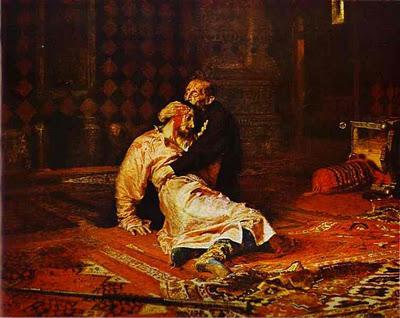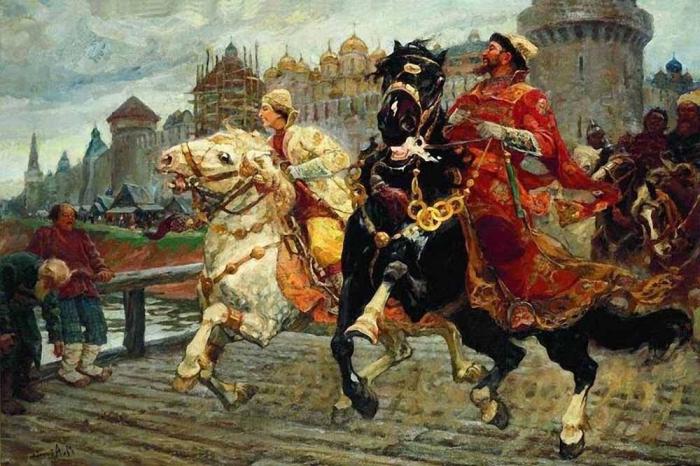Ivan the Terrible - the first Russian tsar, who in 1547 was officially crowned for reign.
The Moscow prince Vasily III and Elena Glinskayain August 1530 the long-awaited son was born - their successor John. When Ivan was 3 years old, his father died and was brought up by his mother, who also died in 1538 when he was 8 years old. Ivan grew up surrounded by a struggle for the power of boyar families that were at enmity among themselves, surrounded by palace coups.
Violence, murder, intrigue made himsuspicious, vindictive and cruel. Even when he was young, he already dreamed of unlimited power. And when Ivan became an adult in 1545, he became ruler of Russia. In 1547, January 16, in the Moscow Kremlin in the Assumption Cathedral was his wedding at the kingdom. The title "king" in translation means "emperor".

In connection with the expansion of the territory of Moscowstate and the creation of an order system, the economic and trade ties between the regions intensified. From the center to the north they brought bread, and from there - salt, furs, and fish. During the reign of Ivan IV, trade began with Western Europe through Novgorod and Smolensk. Became more regular trade with England. Through the White and Barents Seas, the road from Britain to Russia was opened. Founded an English trading house in Moscow, and in 1584 the port of Arkhangelsk on the shore of the Dvinskaya Bay.

The first Russian Tsar - Ivan Vasilyevich Grozny -one of the most educated people, he had a phenomenal memory, in theology he was an erudite. He was the author of many messages. I wrote the text and music for the service to the feast of the Our Lady of Vladimir, as well as the canon of Archangel Michael. In the organization of printing, he played a very important role. In Moscow on Red Square, the erection of the church of St. Basil the Blessed, the first king - Ivan - was the initiator of its construction.

The activities of Ivan the Terrible receiveda versatile description in Russian history, because pre-revolutionary historians characterized it negatively, while the Soviets emphasized its positive aspects during the reign. And in the twentieth century, in the second half, historians began to study deeply the internal and foreign policies of Ivan the Terrible.












